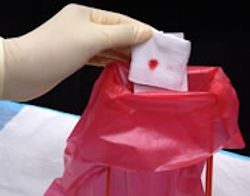Universal and Standard Precautions
Universal precautions are a set of precautions designed to prevent transmission of human immunodeficiency virus (HIV), hepatitis B virus (HBV), and other bloodborne pathogens when providing first aid or healthcare.

Universal precautions apply to blood and to other body fluids containing visible blood. Under universal precautions, blood and certain body fluids of all patients are considered potentially infectious for HIV, HBV and other bloodborne pathogens.
Standard Precautions are designed to reduce the risk of transmission of microorganisms from both recognized and unrecognized sources of infection in hospitals. Standard precautions apply to:
- blood;
- all body fluids, secretions, and excretions, except sweat, regardless of whether or not they contain visible blood;
- non-intact skin; and
- mucous membranes.
Standard Precautions include:
- Hand hygiene.
- Use of personal protective equipment (e.g., gloves, masks, eyewear).
- Respiratory hygiene / cough etiquette.
- Sharps safety (engineering and work practice controls).
- Safe injection practices (i.e., aseptic technique for parenteral medications).
- Sterile instruments and devices.
- Clean and disinfected environmental surfaces.
Knowledge Check Choose the best answer for the question.
8-1. A primary control strategy designed to prevent transmission of human immunodeficiency virus (HIV), hepatitis B virus (HBV), and other bloodborne pathogens when providing first aid or healthcare is called _____.
You forgot to answer the question!
